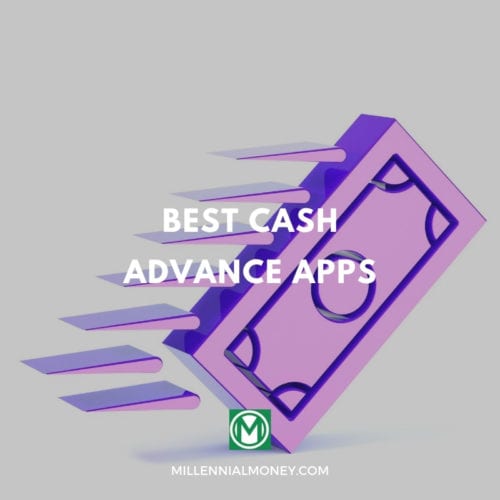While they’re often used as synonyms in the personal finance community, there’s actually a distinct difference between financial freedom and financial independence.
Financial freedom is the mindset that allows you to live the life you want.
It’s the ability to live your life for yourself and not for a boss. You might still need to work, but you have enough in savings that you can live life on your terms.
If your job is stressing you out, you can find another job without fear of where your next meal will come from. You’re free to do things like travel and buy cool stuff that you want. You don’t feel the confines of money because you’ve set up your finances to work for you.
Financial independence is the number in your bank account that allows you to leave work forever.
It provides you financial security. Essentially, you’re financially independent and can step out of your job without fear of repercussions. All of your living expenses will be covered, regardless of earned income. It’s a much more defined term because it looks at the money aspect of your lifestyle.
Why Are the Terms “Financial Freedom” and “Financial Independence” Often Confused?
Unfortunately, these terms are often confused for one another. I think that’s because their goals are similar. They both focus on your financial journey. But one—financial freedom—is a lifestyle choice; the other—financial independence—is a financial milestone.
What Are the Elements of Financial Freedom?
Financial freedom is a lifestyle choice. It’s when you’re financially stable enough to not need to rely on the specific job you’re currently working because you have enough to float you.
You’ve paid off all your debt and you have enough in savings to cover any large emergencies. You stop making decisions based on money and start making them based on what you want to do. You’re able to shift your thinking and live life the way that you want to.
You might decide to quit working and pursue a side hustle, or to drop down to part-time work. Regardless, you’ve set your finances up to have those choices.
You’re able to do the things that you love, regardless of money.
What Are the Elements of Financial Independence?
Financial independence is a milestone in your finances.
It’s the moment you reach enough money that you could stop working and be financially okay for the rest of your life. You might still want to work, but you don’t need to. You’re completely independent of a job or family. You can support yourself on your own without any help from anyone else.
There are several ways to achieve early financial independence. You can build up passive income, with real estate investing or dividends from the stock market. Or, you can save enough to live off of your investments. Either way, you have a positive cash flow and will live well in retirement, regardless of what age you are.
The financial goal of this level of independence is to be able to retire early and have enough retirement savings and passive income to last until you die. You’ve eliminated all credit card debt, have passive income streams, and are able to cover your annual expenses without working.
What Happens When You Combine Financial Independence and Financial Freedom?
The magic happens when you combine financial independence with the mindset of financial freedom. Since financial freedom is a mindset that allows you to live your best life, you can leverage that during your journey to financial independence.
You can use this mindset to think beyond just being financially independent. You can use it to imagine going on wild trips, and then taking them. Or about fancy cars, and then buying them.
That’s not to say you should go into debt for these things, but true financial freedom allows you to pursue your biggest dreams, and financial independence is the vehicle that allows you to do so.
Benefits of Financial Freedom Vs. Financial Independence
While both financial freedom and financial independence are important markers of financial success, I argue that financial freedom is more important than financial independence.
Even if you achieve financial independence, you might feel trapped and limited without financial freedom.
Cultivating an attitude of financial freedom will help you feel completely free to live the life of your dreams.
What Does an Attitude of Financial Freedom Look Like?
Cultivating an attitude of financial freedom starts with mindset work.
You need to believe in the abundance that the world has to offer and focus on choosing to see the good. This helps when you’re threatened by a scarcity mindset to realize that money (and the ability to make money) is essentially limitless, and there is enough to go around.
From there, you want to start asking what your money can do for you. Money is an amazing tool that allows you to achieve anything that you could want (though not everything you could want). Focus on where your priorities lay, and then start creating a plan to get there.
Ask yourself “What do I want from my money?” And then tell yourself how to get there.
When you allow yourself to see money as a tool towards a better future, you’re able to grasp the core tenants of financial freedom.
Financial Independence is Important for Financial Freedom
This is not to say that financial independence isn’t important. It is. But you can achieve financial freedom without it.
Financial independence is important to financial freedom because it’s the culmination of your beliefs about money coming into fruition.
You’ve been able to imagine a luxurious life for yourself, and you’ve done the hard work of saving for it. Financial independence is financial freedom paying off in the long run.
The two can work hand and hand to create beautiful energy and give you the ability to start off on amazing adventures, regardless of your need for money.
Challenges with Financial Freedom and Financial Independence
That’s not to say that striving for financial freedom and financial independence is easy. In fact, it can be challenging because you’re going against the grain of society.
Society conditions us to work until we’re 60 or 70, and then retire to enjoy a few golden years before the end of our life. When we want something other than the traditional employment path, people balk. It’s not uncommon to have friends judge us for our choices because they’re acting on their own insecurities.
This can be a little disheartening, at first, but you have to remember that you’re not living life for anyone other than yourself.
Common Obstacles to Financial Independence and Financial Freedom
Other than the people in our lives judging us for chasing something outside the normal course of society, we also have to be wary that we do not become our biggest obstacle to financial freedom and independence.
In order to achieve financial independence and financial freedom, we have to consider our relationship with money.
It’s really easy to decide to live in the moment without thinking about our future financial self. Things like budgeting and money management are hard to accomplish, especially if you’re worried about keeping up with the Joneses.
Navigating the Challenges of Financial Freedom
If you’re worried about being your own worst enemy, set up safeguards around your money habits. Having an accountability buddy is a great way to help set yourself up for success. Community building is one of the best ways to ensure your progress. If you’re anything like me, you don’t want to show up to an accountability meeting without being on track. Having shared goals with a life partner can also be a great help.
Frequently Asked Questions (FAQs)
Below are answers to some of the most frequently asked questions about financial independence and financial freedom.
Why Does Financial Freedom Look Different for Everyone?
I might think that an ideal lifestyle consists of traveling around in my RV with my two dogs and cat, and yours might look like owning a high rise in NYC.
The goal of financial freedom is different for everyone because everyone’s ideal lifestyle is different. You can’t rate your success based on someone else’s success.
How Do I Set Goals to Reach Financial Freedom?
Goal setting is exceptionally important to achieving financial freedom. You want to start with small actionable steps to get you there.
For example, right now my next big goal is to move out. To me, that’s a huge step towards financial freedom. I’ve set up smaller goals to help me break down the big picture.
The first smaller goal is to quit Starbucks. I’ve been working there while I increase my freelancing income, but the job has lived its course. To quit responsibly, I need $5,000 in emergency fund savings.
After I’ve quit, I want to sock away another $10,000 to have a fully-funded emergency account.
Then, I can start looking for places to rent.
These small goals add up to a bigger picture of financial freedom. I’m seeing the opportunities my money has provided me and I’m using them to propel myself towards an ideal lifestyle.
What do your goals look like to achieve financial freedom?
The Bottom Line
Achieving financial freedom is a great goal, and if you work hard at shifting your mindset, it’s a very attainable goal. You just have to be committed to living your best life and financially backing that up.





No comments yet. Add your own